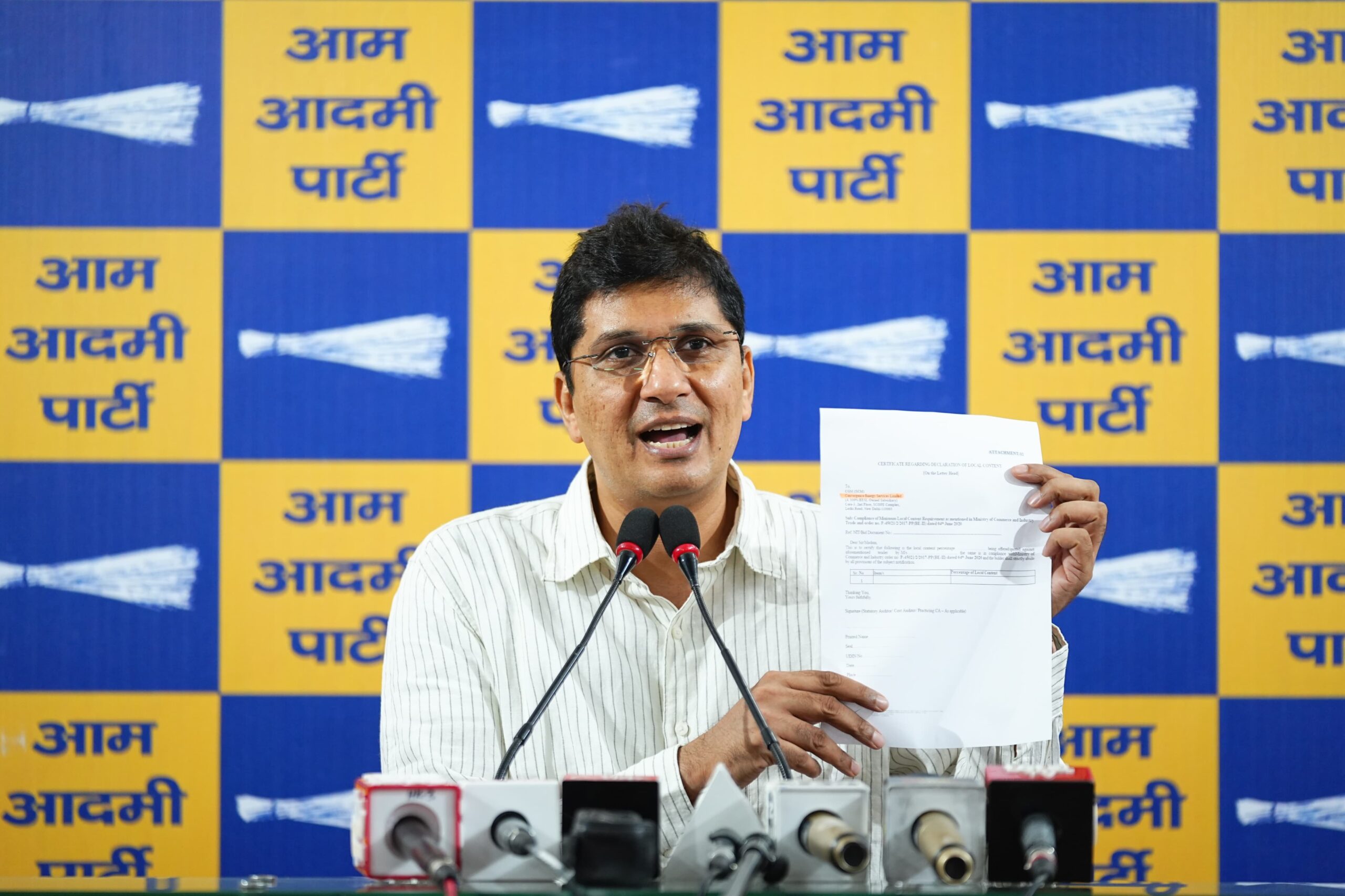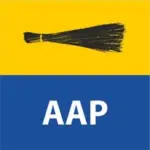To steal credit from AAP Govt, BJP re-inaugurated 400 ‘Mohalla Buses’ under name ‘Devi’: Saurabh Bharadwaj
Arvind Kejriwal Govt did not deploy these buses on roads because they failed to meet 50% ‘Make in India’ components requirement: Saurabh Bharadwaj
Did BJP Govt return those buses or replace their components with ‘Make in India’ parts? Saurabh Bharadwaj
When these buses did not meet ‘Make in India’ conditions, how did BJP Govt forcibly put them on roads? Saurabh Bharadwaj
NEW DELHI:
The Aam Aadmi Party (AAP) on Friday exposed a multi-thousand crore rupee scam in the operation of ‘Devi’ buses recently launched on Delhi roads. AAP Delhi State President Saurabh Bharadwaj pointed to possible corruption and demanded a probe by the Central Bureau of Investigation (CBI), pointing out that the same buses—procured under the AAP government in October 2024—were shelved for violating the 50% ‘Make in India’ clause.
“If these buses were unfit then, how are they magically compliant now?” Saurabh Bharadwaj asked, slamming the BJP for falsely claiming credit while allegedly orchestrating a massive financial fraud.
During a press conference, AAP Delhi State President Saurabh Bharadwaj stated, “Yesterday, the Delhi unit of the BJP held a second inauguration ceremony for the same 400 Mohalla Buses whose first inauguration and trial run had already begun in October 2024. We had all seen those 9-metre Mohalla Buses in action. The procurement process for these buses had begun nearly two years ago, and the announcement was made by the Delhi government. By October, all of these electric Mohalla Buses had arrived in Delhi, and everyone had seen videos of their trial runs.”
Raising questions on wasteful expenditure, Saurabh Bharadwaj said, “Why did they waste money by inaugurating those buses again. This is just like what they did with the water tankers.”
“Every year, around 1,000 water tankers are used in Delhi. Since 2015, GPS systems have been installed in all of them. Since 2015, anyone can track any tanker on their phone by entering its number. Despite this, they wasted lakhs of rupees on another inauguration. This same spectacle was repeated yesterday,” he elaborated.
Linking the delay to a serious issue of governance and transparency, the AAP Delhi State President said, “Here lies a very technical but crucial question directly tied to corruption: if the buses had already arrived in Delhi in October, why did they not run until April?”
“The reason is that the procurement and tender process for these buses was managed by a central government company—CESL, Convergence Energy Services Limited. Although the entire funding came from the Delhi government, the process was handed over to the Centre to avoid any future allegations. The BJP routinely alleges corruption whenever buses are procured, so we handed over the responsibility to the Centre so they could not level accusations later,” he added.
Referring to how the issue came to light, Saurabh Bhardwaj said, “After the buses arrived, it was discovered that they had violated the tender conditions—conditions that were absolutely essential. The Ministry of Power, under which CESL operates, and the Ministry of Commerce and Industry’s Department for Promotion of Industry and Internal Trade (DPIIT) had issued an order on 20 June mandating compliance with ‘Make in India’ guidelines.”
He continued, “But when these buses were procured by the central company, it became evident that they did not meet Make in India compliance. They could not produce a certificate stating that 50% of the components were sourced under Make in India. This was a clear condition in the tender.”
Explaining the consequences of this violation, Saurabh Bharadwaj said, “Since these buses lacked Make in India components and couldn’t provide the required certification, they were kept idle in the depot. If they were non-compliant in October, how could they suddenly become compliant in April? Were the components changed? Were all these buses returned and refitted with compliant Make in India parts? Did compliance magically happen? The Delhi government must answer.”
He added, “And if the compliance didn’t happen, then how were these buses allowed to run on the roads in violation of tender conditions? You issued a tender with a very clear requirement: 50% of the components must comply with Make in India. Once companies were shortlisted under those conditions, can you say that the condition doesn’t apply anymore? Once a tender is finalised, you cannot just relax or remove its conditions.”
“We want this to be thoroughly investigated,” said Saurabh Bharadwaj, pointing towards potential large-scale irregularities in the process. “It appears that a major scam has taken place. We do not know at which level the corruption occurred — whether it was at the level of government officials or at the level of the government itself — but it must be investigated. There should be a CBI inquiry into this matter. This is a significant case involving thousands of crores of rupees.”
He further emphasised, “Everything is documented. This is not a situation where anything can be altered or erased later. It is properly documented that the buses were not in compliance.”
Referring to official documents of the tender drafted by the central government, he read out the conditions, “Section A, Condition No. 11 – It clearly requires a scanned copy to be uploaded — a certificate regarding declaration of local content, as per the format in Attachment No. 12. This was a pre-condition to qualify.”
Explaining the requirement further, Saurabh Bharadwaj said, “Attachment No. 12 contains the Certificate Regarding Declaration of Local Content. This certificate must be submitted by the manufacturer — that is, the vendor — and it is to be given to CESL: Convergence Energy Services Limited, which is a 100% subsidiary of EESL. And EESL comes under the Department of Power, Government of India.”
Posing a direct question to the central authorities, he concluded, “We want to know — how did these buses manage to obtain the Make in India compliance certificate within just six months? And whose clever handiwork produced this certificate?”
The central government has established a rule that 50 percent of the components in buses purchased through any government tender must be manufactured in India. This is intended to promote domestic industry, provide employment to youth, and support the country’s development. The company supplying these buses was unable to provide a certificate confirming that 50 percent of the components were made in India. For this reason, even after the arrival of these buses in October 2024, the Aam Aadmi Party government in Delhi did not begin operating them as Mohalla Buses.




